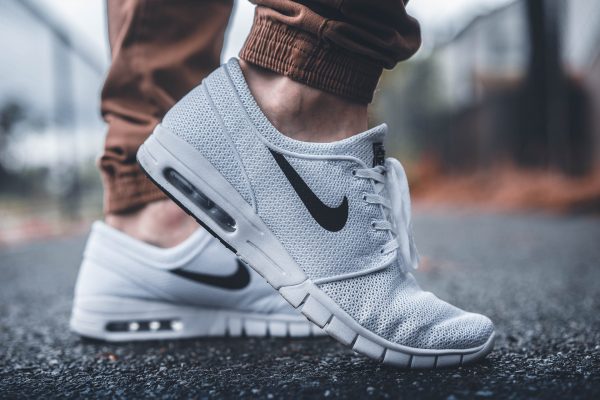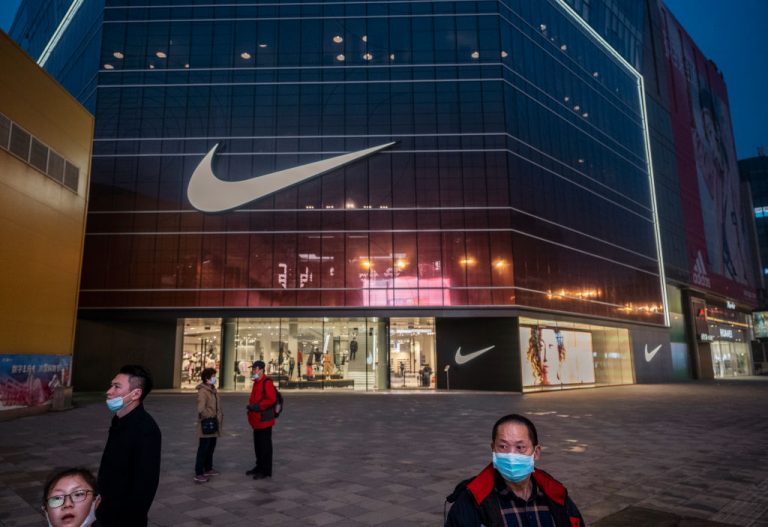Nike recently held a conference call with Wall Street analysts about the company’s fourth-quarter earnings report. When asked about facing competition from Chinese brands, Chief Executive John Donahoe replied that Nike is a “brand that is of China and for China.” He was evidently confident that Nike would continue the growth in communist China given its investments.
“We’ve always taken a long-term view. We’ve been in China for over 40 years… Phil [Knight] invested significant time and energy in China in the early days and today we’re the largest sport brand there,” Donahoe stated. Phil Knight is the founder of Nike.
Donahoe’s statement comes after Nike has been severely criticized in the U.S. for its potential involvement in using forced labor during manufacturing in China. The allegations also resulted in negative backlash from Chinese netizens.

In a March 2020 report, the Australian Strategic Policy Institute (ASPI) had pointed out that Nike was one of the international companies that were employing forced labor of Uyghurs in Chinese factories.
- The report revealed that 600 ethnic workers from the Uyghur-dominant Xinjiang region were employed at Qingdao Taekwang Shoes Co. Ltd in January 2020. Taekwang’s primary customer is Nike. The factory, located in Laixi, outputs over seven million pairs of shoes annually, making it one of the largest manufacturers of the American brand.
- The Haoyuanpeng Clothing Manufacturing Co. Ltd, whose headquarters is located in Anhui province, has a strategic partnership with Nike. In 2018, the company transferred 63 workers from Xinjiang to its factory in Anhui. The workers were all “graduates” from the Jiashi County Secondary Vocational School, which the report believes is a re-education camp. Such camps are aimed at suppressing cultural heritage of the detained people and brainwashing them to accept communist ideals.
In March 2021, Nike issued a statement saying that the company is “concerned” about forced labor being used in Xinjiang. Nike asserted that it does not source products from Xinjiang and that its suppliers do not buy spun yarn or textiles from the region.
Success
You are now signed up for our newsletter
Success
Check your email to complete sign up
“We have been conducting ongoing diligence with our suppliers in China to identify and assess potential forced labor risks related to employment of Uyghurs, or other ethnic minorities from XUAR (Xinjiang), in other parts of China… Our ongoing diligence has not found evidence of employment of Uyghurs, or other ethnic minorities from XUAR, elsewhere in our supply chain,” the statement said.
Communist China took offense at Nike’s assertion of forced labor being used in Xinjiang. Chinese state-backed media outlets and social media attacked Nike’s position. A CCP-backed Global Times article said that Chinese citizens found the company’s announcement “disgusting and asked the brand to get out of Chinese market.” The hashtag #nike trended on Weibo, a Chinese Twitter equivalent. Popular Chinese actor Wang Yibo also terminated his contract with Nike.
In April, Citi had downgraded Nike from Buy to Neutral. “We see near-term pressure on sales/margin (on Nike) due to a slowdown in demand in China related to the Xinjiang cotton issue,” Citi analyst Paul Lejuez had said in a comment.
According to a report by The Wall Street Journal published on June 24, a survey by Citigroup had found that 34 percent of Chinese respondents were “significantly less likely” to buy foreign brands. Nike’s recent earnings report shows that the company’s revenue from communist China was just over $1.9 billion for the fourth quarter, missing Wall Street expectations of $2.2 billion.
It is in this context of poor public perception in China that Donahue claimed that Nike is a “brand that is of China.”
In a Senate Foreign Relations Committee hearing earlier in June, Republican Senator Marco Rubio criticized Nike and stated that several American companies have not woken up to the fact that they were “profiting” from communist China’s government abuses.
“For far too long companies like Nike and Apple and Amazon and Coca-Cola were using forced labor. They were benefiting from forced labor or sourcing from suppliers that were suspected of using forced labor… These companies, sadly, were making all of us complicit in these crimes,” Rubio stated.
In January 2021, Rubio introduced the “Uyghur Forced Labor Prevention Act” in the Senate which aims to ensure that goods made from forced labor in Xinjiang are not allowed into the United States. The bill was passed in the House in September 2020. A report by the New York Times stated that companies like Nike were lobbying Congress to weaken the bill.

















